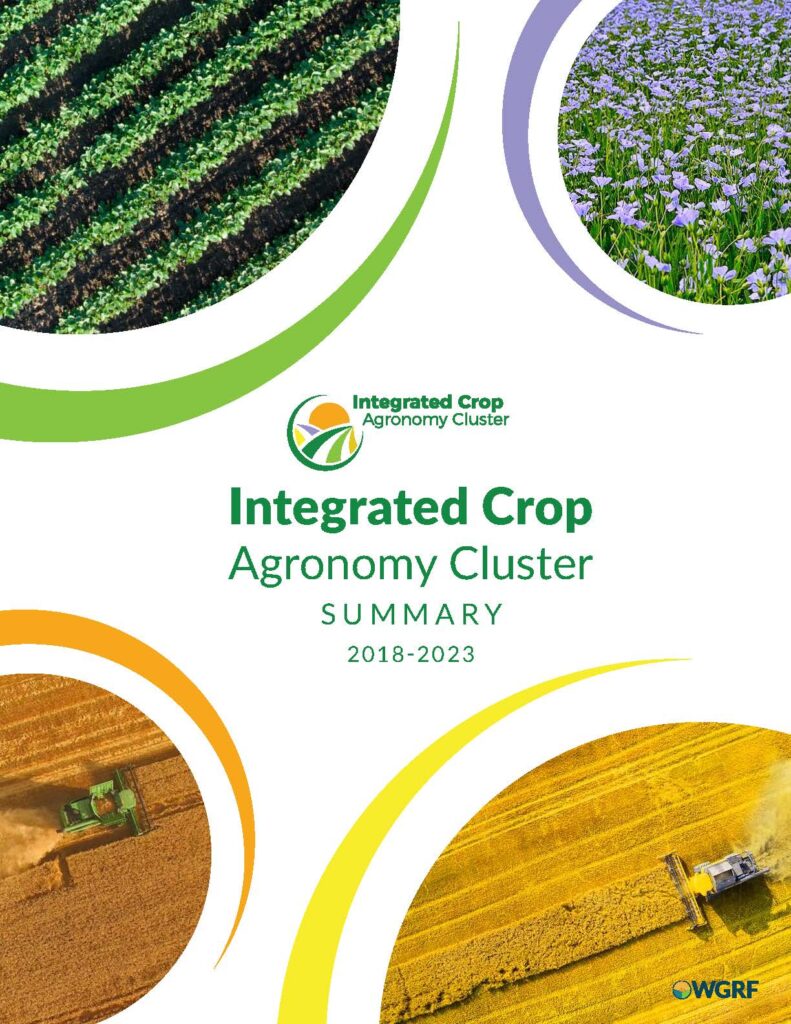Integrated Crop Agronomy Cluster Research Summary
WGRF is very excited to be sharing the results of the Integrated Crop Agronomy Cluster (ICAC). The eight research activities outlined in this report range from soil health to herbicide resistance and climate change adaptation. Other activities include coordination of crop insects and disease monitoring, assessing and managing spray drift, developing a risk model for mitigating Fusarium head blight, development and management of productive, resilient and sustainable cropping.

The total value of research included under the five-year Cluster is over $9 million, with $6.3 million coming from the Canadian Agricultural Partnership (CAP) AgriScience Cluster program, $1.6 million from WGRF, and $1.1 million from our industry partners.
“This summary document showcases the projects and people that helped make ICAC so successful,” says Laura Reiter, WGRF Board Chair. “The process for developing this Cluster began with the realization that a gap had emerged in multi-crop and systems approaches to agronomic research. The results include the development of a number of insights and tools including websites, factsheets, and risk models that will provide farmers with valuable information as they tackle widespread agronomic challenges.”
More than 75 researchers participated in ICAC working at Agriculture and Agri-Food Canada (AAFC), Alberta Agriculture and Forestry, Agri-Metrix, Brandon University, Farming Smarter, InnoTech Alberta, Prairie Agricultural Machinery Institute (PAMI), Smoky Applied Research and Demonstration Association (SARDA), University of Alberta, University of Manitoba, University of Saskatchewan, and Western Applied Research Corporation (WARC).
“A constant of WGRF is our collaborative approach to funding research,” says Wayne Thompson, WGRF Executive Director. “Coordination and collaboration were paramount for ICAC. This Cluster provided an opportunity for a broad geographic research perspective, with collaborators and funders from across Western Canada, which was a real advantage.”
WGRF would like to acknowledge all the funders of ICAC including the Alberta Pulse Growers, Alberta Wheat Commission, Brewing and Malting Barley Research Institute, Manitoba Canola Growers Association, Manitoba Crop Alliance, Manitoba Pulse and Soybean Growers, Prairie Oat Growers Association, Saskatchewan Canola Development Commission, Saskatchewan Pulse Growers, and Saskatchewan Wheat Development Commission.
